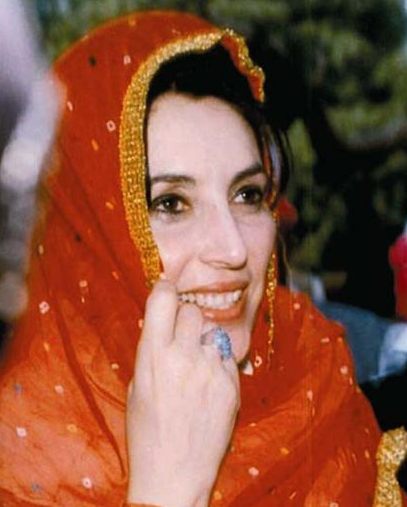That being said, I can't go without mentioning what happened in Pakistan today, because it is undoubtedly one of the biggest news stories of the year.
 Former Prime Minister of Pakistan, Benazir Bhutto, died today of gunshot wounds following a rally. An attacker ran toward her vehicle, fired shots into her neck and shoulder and detonated an explosive device that also killed 22 other people.
Former Prime Minister of Pakistan, Benazir Bhutto, died today of gunshot wounds following a rally. An attacker ran toward her vehicle, fired shots into her neck and shoulder and detonated an explosive device that also killed 22 other people.Officials have reported that the attack may be attributed to al Qaeda.
A member of the Pakistan Peoples Party, Bhutto became the first woman to lead a modern Muslim country in 1988. She was an advocate of democracy in Pakistan and earned her fair share of militant enemies [click here for a comprehensive timeline of Bhutto's life].
After gaining power and being removed twice for clashing with military, Bhutto was charged for corruption and banned from politics. She went into self-exile, and after President Pervez Musharraf signed an amnesty quashing any corruption charges against her, the former prime minister returned to Pakistan in October.

Unfortunately, she was immediately met with an attempt on her life at a rally in Karachi in which 50 of her security guards who had formed a human chain around her truck were killed in what was later determined to be a suicide bomb attack.
Bhutto was well aware of the danger to her life but was committed to fighting Islamic militants.
"We can take care of this, I can take care of this, you can take care of this." --Benazir Bhutto.
From CNN/Time.com: Pakistan is the only Islamic state with a nuclear arsenal. And Washington has private concerns about the security of those weapons. Those worries will intensify in the wake of Benazir Bhutto's assassination. Peter Galbraith, of the Center for Arms Control and Non-Proliferation says one thing is certain: It is "not a good idea to have 70 nuclear weapons in the hands of a country that is falling apart."




No comments:
Post a Comment